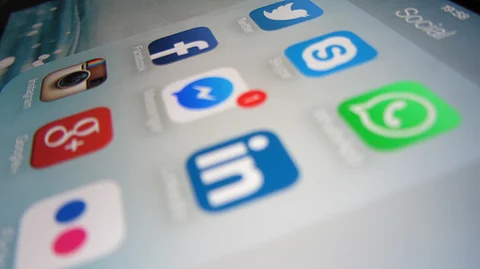

From the first recorded instances of censorship in ancient Rome to the Great Firewall of China, efforts to regulate information have been a defining feature of governance. But the rise of social media platforms has created a new power structure, where tech companies now hold an unprecedented role in shaping public discourse. Platforms such as Facebook, Twitter, and TikTok determine what content is permissible, a function historically reserved for governments and traditional media outlets.
The issue is no longer just about state control—private corporations now exert influence over global speech, often under pressure from lawmakers, advocacy groups, and advertisers. In this evolving landscape, the question remains: who decides what we can and cannot say?
The early internet was often described as the digital Wild West, where users could access almost anything without restriction. However, as social media became integral to political movements and news dissemination, governments and private entities moved to regulate content. Some of the key trends include:
Government-Controlled Censorship: Countries like China, Russia, and Iran have implemented aggressive content control measures, restricting political dissent and independent journalism.
Corporate Moderation: Social media companies claim to combat hate speech, misinformation, and harmful content, but critics argue that vague policies and inconsistent enforcement often target dissenting voices.
Global Influence: U.S. lawmakers have pressed Mark Zuckerberg and other tech CEOs to strengthen platform moderation, while TikTok faces scrutiny over potential Chinese government influence.
Proponents of content moderation argue that filtering misinformation and dangerous material is necessary for public safety. However, the criteria for what constitutes “harmful content” remain unclear and often politically motivated. Key areas of contention include:
Control of Ideas: Historically, censorship has been used to suppress political dissent. Today, critics claim tech companies are playing a similar role.
Security vs. Freedom: Governments argue that certain information must be restricted to prevent threats like terrorism and election interference, but at what cost?
Corporate Interests: Tech companies claim neutrality, but business incentives and advertiser influence often dictate their policies.
The Globalization of Censorship: Regulations are no longer dictated by a single nation—governments, corporations, and international bodies now shape speech on a global scale.
While many agree that some form of moderation is necessary, critics warn that it can easily morph into a tool of suppression. Recent high-profile cases highlight the complexity of the issue:
The COVID-19 Debate: Platforms cracked down on pandemic misinformation, but some argue legitimate scientific discussions were also silenced.
Political Censorship: Claims of shadow banning and algorithmic suppression have fueled debates about political bias in Silicon Valley.
International Regulation Battles: Countries such as India and Turkey have forced platforms to comply with national censorship laws, raising concerns about platform neutrality.
As the digital world continues to evolve, so too will the policies governing online speech. Will governments and corporations find a way to balance security, public safety, and free expression, or will the power over information remain in the hands of a select few?
With growing public pressure, some platforms may push for greater transparency and independent oversight. Others may continue the status quo, reinforcing concerns about unchecked digital gatekeeping.
Social media censorship is no longer a niche debate—it is one of the defining issues of the modern era. The struggle between freedom of expression, security, and corporate control is far from over. In a world where much of public discourse happens online, the future of democracy and open dialogue may depend on how this debate unfolds in the years ahead.